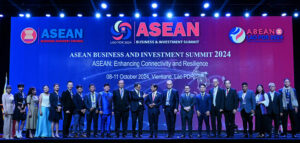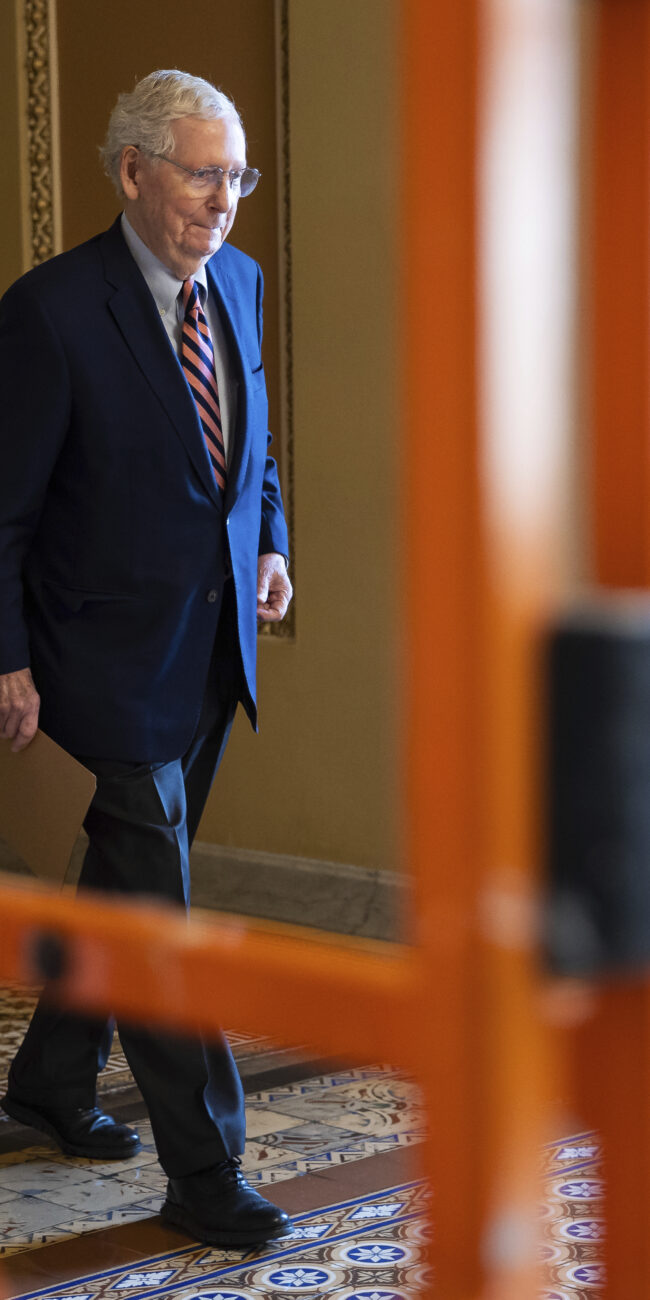
Can ASEAN’s leaders seize their opportunities in 2025?
An unsettled global environment faces Southeast Asian countries into the last few months of 2024, driven by uncertainties ranging from the elections in the United States and weakness in the Chinese economy, to the outcome of the wars in Ukraine and the Middle East. Consequently, the major ASEAN economies face several short-term unknowns from external factors, including a potentially worsening trade war, volatile energy prices and unpredictable economic trajectories for their key markets.
Where the leaders of five of the six largest Southeast Asian countries by population can find some relief is in their domestic politics, however. Several of them have fewer political challenges (or challengers) after three years of elections, shaky coalitions, and uncertain partnerships.
In Indonesia, Prabowo Subianto was inaugurated yesterday as the country’s 8th president after decisively winning a 59% majority last February. His Koalisi Indonesia Maju (KIM, or the Advance Indonesia Coalition) has a supermajority in parliament, almost assuring the approval of any of his early policy initiatives. Prabowo’s vice-president is Gibran Rakabuming Raka, the eldest son of former president Joko Widodo, who still commands a high 75% approval rating after 10 years in office.
Prabowo had stirred concern during his two previous presidential runs in 2014 and 2019 due to his seeming nationalist and populist tendencies, especially in his insistence that foreign investors had exploited Indonesia. However, his uncontroversial stint as defense minister since 2019 and campaign promise to maintain continuity with the Widodo administration have significantly blunted these fears over the past year. His decision only last week to reappoint the technocratic Sri Mulyani Indrawati as finance minister — a surprise to most Indonesia-watchers because of her fiscal prudence compared to Prabowo’s criticism of neoliberal economics — is adding to the sense that he is now a much more pragmatic politician. Prabowo will therefore enter his first year of office with some optimism that governance and politics will be on an even keel, at least for 2025.
Meanwhile, Malaysia’s Prime Minister Anwar Ibrahim tabled his 2025 budget in parliament last Friday — the country’s biggest spending plan ever at MYR 421 billion ($98 billion). He has now been in office 23 months, which is the longest term for a prime minister in the six years since the once-dominant National Front (BN) lost control of the government. The past few months have been uncharacteristically devoid of the infighting and continuous speculation of coalition collapse that had hounded his three immediate predecessors.
There continues to be noise that BN, now his main partner in the Alliance of Hope (PH, or Pakatan Harapan) coalition, wants to eventually break away as it attempts to reestablish its prominence, and of grumbling from his long-standing allies from the ethnic Chinese and Indian minorities on the lack of social reform. But Anwar is gambling — correctly in our view — that the parties in his coalition recognize that they will likely be worse off if the current government coalition collapses, and that they will therefore stay with him to avoid worse outcomes. He is now focusing on economic reforms, in an attempt to deflect criticism that he is stalling on political and social changes. Anwar, therefore, is expected to fully serve out his term until elections become due in 2027.
In Thailand, the government of Prime Minister Paetongtarn Shinawatra last month released the first tranche of its $14- billion stimulus program — a direct cash handout of THB 10,000 ($300) for about 45 million Thais. The first stage has disbursed roughly $4.5 billion to 14 million welfare recipients and the disabled. Early next year, the program will expand to an additional 25-30 million Thais. She has also pledged to relieve households from a crushing debt burden, which now stands at about 90% of GDP.
Another initiative is to reduce costs for small businesses by directly reducing their rental and logistics costs. These policies are the political trademarks of Shinawatra leaders, which is no surprise since former prime minister Thaksin Shinawatra is expected to closely coordinate his daughter’s political and economic agenda. The popular opposition People’s Party, which was formed from the disqualified Move Forward Party at roughly the same time as Paetongtarn’s government, is still finding its footing as it confronts its former partner.
In the Philippines, the administration of President Ferdinand Marcos, Jr. must, over the next nine months, navigate the May 2025 midterm elections and its worsening public fight with Vice-President Sara Duterte. But the noisy politics is misleading. Marcos Jr. does not face any major challenge from the Dutertes, after Sara’s threat that her family would field three of its members — her father and two brothers — as senatorial candidates evaporated. The midterm elections will devolve into one of personalities seeking to position themselves for 2028, rather than in provoking an immediate confrontation with the Marcos administration.
Finally, Vietnamese leader To Lam heads into an important leadership transition in early 2026. This process will always contain some uncertainty, given the opacity of politics within the Communist Party of Vietnam (CPV), but he is now the clear front runner to be confirmed as its leader for the next five years after outmaneuvering several senior party contenders. To Lam therefore has a strong incentive to smooth the trajectory of both the economy and internal politics over the next few months, including emphasizing to foreign investors the continuation of its export-led growth policy and reducing the political and economic uncertainty generated by its “blazing furnace” anti-corruption campaign.
The key question is whether these leaders will use the opportunity provided by their relatively sanguine domestic political outlooks to their country’s advantage for the longer-term, or in dealing with key Southeast Asian issues such as the conflict in Myanmar or the region’s territorial disputes. At the same time, they are also all facing longer-term challenges, whether it be structural social and political reform for Malaysia and Thailand, or improvements in key areas of governance for the Philippines, Vietnam, and Indonesia. Addressing them all requires policies that go beyond lip service.
For now, large portions of their domestic population seem to be willing to give them the benefit of the doubt. Still, there are risks. Prabowo could revert to his nationalist and populist agenda faster than expected, which could disappoint investors, or his anti-democratic tendencies might manifest, resulting in protests in the streets. Anwar might be misreading the solidity of his coalition, the sentiments of Malay voters, and his ability to postpone dealing with social reform, and any sense of weakness at the ground level will have repercussions in his coalition. Paetongtarn’s focus on economic stimulus while shutting out structural changes could prove to be a similar misreading of voters, who may not be as enamored with the Thaksin brand as in previous years and want the constitutional reform being advocated by the opposition. The absence of any immediate challenge might cause Marcos to become overly complacent and focused on the Dutertes, which causes him to neglect simmering public frustration to corruption that ultimately manifests starting in 2026. And the opacity of Vietnam’s internal politics may contain more risks than are visible from the outside, which includes a harsher crackdown and an unforeseen challenge to To Lam ahead of the leadership change.
Bob Herrera-Lim is a political analyst who advises investors globally. He is also a fellow for the Foundation for Economic Freedom.

